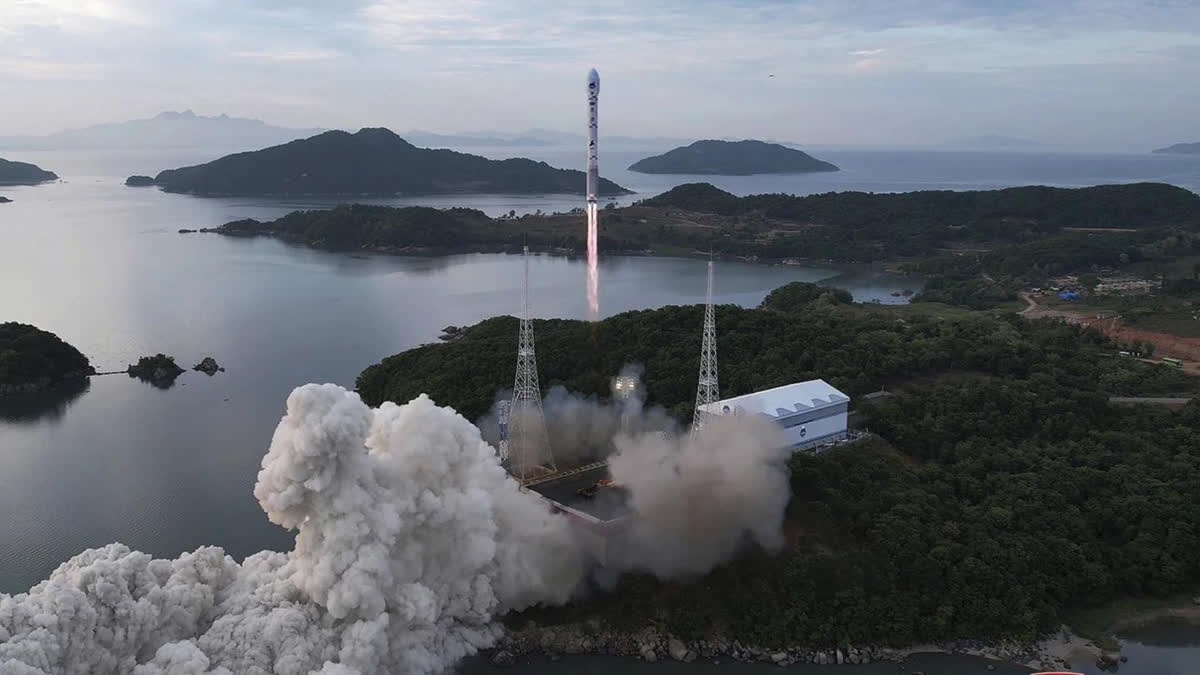Seoul : North Korea said it placed a spy satellite into orbit with its third launch attempt this year, demonstrating the nation's determination to build a space-based surveillance system during protracted tensions with the United States. The North's claim Wednesday could not immediately independently be confirmed.
Observers doubt whether the satellite is advanced enough to perform military reconnaissance. But the launch still invited strong condemnation from the United States and its partners because the U.N. bans North Korea from conducting satellite launches, calling them covers for tests of missile technology. The North's space agency said that its new Chollima-1 carrier rocket accurately placed the Malligyong-1 satellite into orbit on Tuesday night, about 12 minutes after liftoff from the country's main launch center.
The National Aerospace Technology Administration called the launch a legitimate right of North Korea to bolster its self-defense capabilities. It said the spy satellite would help improve the North's war preparedness in the face of the enemies' dangerous military moves. The agency said leader Kim Jong Un oversaw the launch at the scene and congratulated scientists and others involved. It said North Korea will launch several more spy satellites to better monitor South Korea and other areas.
U.S. National Security Council spokesperson Adrienne Watson said Washington strongly condemned North Korea for the launch, saying it "raises tensions and risks destabilizing the security situation in the region and beyond. She said the launch involved technologies that are directly related to North Korea's intercontinental ballistic missile program.
South Korea said the launch would push it to suspend a 2018 inter-Korean tension-reduction agreement and resume frontline aerial surveillance of North Korea. Japanese Prime Minister Fumio Kishida called the launch a serious threat that affects the safety of the people" and said Japan lodged a protest with North Korea condemning the launch in strongest terms.
According to South Korean and Japanese assessments, the rocket carrying the satellite flew from the Korean Peninsula's west coast and over the Japanese island of Okinawa toward the Pacific Ocean. The Japanese government briefly issued a J-Alert missile warning for Okinawa, urging residents to take shelter.
A spy satellite is among the key military assets coveted by Kim, who wants to modernize his weapons systems to cope with what he calls escalating U.S.-led threats. North Korea's attempted launches earlier this year ended in failure due to technical issues.
